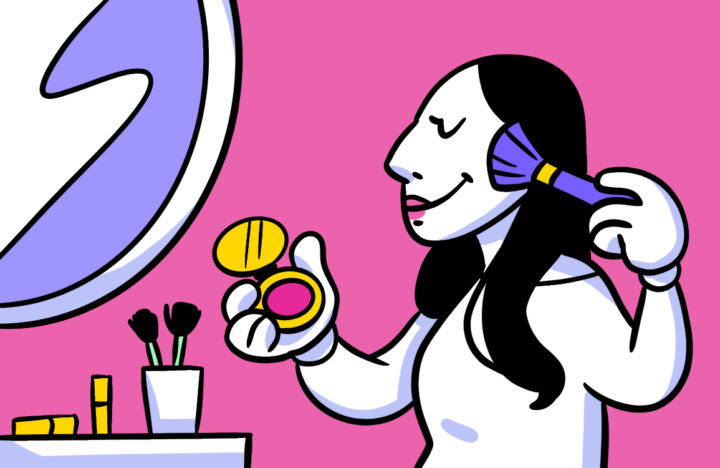Industry Professionals Audience
Cosmetics Industry
Audience Description
Participants who work in a role at a company in the cosmetics industry. The cosmetics industry comprises various fields related to the design, production, marketing and retail sale of perfume, make-up, moisturizers, cleansers, hair products, soap, and other market cosmetic products.
Participants in this industry will likely be knowledgeable in beauty products and retail services. These participants follow recent trends, new brands and new product innovations.
Interesting Participant Qualities
We surveyed our audience of cosmetics industry participants to understand what they think it takes to make it in their career.
64% of participants in the Cosmetics industry believe social media skills are very important in their role.
Cosmetics Panelist Quotes
“Understanding of color , human anatomy, customer service, marketing, photography and staying up to date on new launches and techniques”
“Excellent communication skills, makeup skills, knowledge of skincare, salesmanship, social media skills, and marketing skills.”
“In the cosmetic industry creative thinking is a required skill as it will increase your client base”
“Being able to listen to clients needs and communicate what can and cannot be done”
Common Cosmetics Industry Roles
These common audiences are made up of participants who hold job titles and roles in the cosmetics industry. Each of these professionals can be targeted individually, or roles can be combined to create larger audiences.
- Cosmetic chemist – often known as a cosmetic scientist or a makeup chemist, creates formulae for makeup and toiletry goods. Chemists operate in both laboratories and factories, where they create products and supervise the manufacturing process. They also travel to see their customers.
- Beauty consultant – a professional that specializes in beauty products, sales, and services. A beauty consultant can work at a makeup counter at a department store, in a branded speciality store, or as a freelance consultant. For a price, beauty consultants can provide products, services, demonstrations, or advice. They can specialize in numerous areas such as skincare, treatments, cosmetics, hair, nails, and overall aesthetics.
- Product developer – not to be confused with product formulators (such as cosmetic scientists), but rather with those who recognize a market need for a new product. They work on every stage of the product’s development, from ingredients to packaging, always keeping in mind who the product is for and why it’s being created.
- Sensory scientist – The way beauty products appear, smell, feel, and even taste is extremely significant, and sensory scientists assist in crafting this sensory experience. Sensory scientists have the academic training to determine which sensory characteristics will and will not work in a consumer product.
- Event coordinator – responsible for all logistics and budgeting for both physical and virtual events. They collaborate with various departments in a company, such as marketing and education, to ensure that events go off without a hitch.
- Beauty educator – instructs coworkers, customers, or students on a variety of topics such as makeup application methods, brand knowledge, and new beauty trends. A passion for the subject (whether it’s makeup, hair, nails, or skincare) is required, as is the ability to communicate well and assist others in learning.
- Data analyst – examines information such as website and social media traffic, as well as sales figures for analysis to inform company decisions such as marketing campaigns and merchandising.
- Beauty buyer – in charge of acquiring the products that a beauty company will stock. While the work may appear to be just compensated shopping, it is far more sophisticated. They must be able to forecast trends, determine what will sell in a company’s market, and bargain with suppliers.
- Director of artistry – works for a beauty firm promoting new products, teaching personnel on the brand’s products as well as makeup trends and techniques, acting as the brand’s face at events, and training makeup artists. This multifaceted role is often found in larger firms and works closely with other departments such as marketing, public relations, and events.
- Sustainability manager – looks at where a company has to alter and adapt to be more sustainable. They ensure that products are manufactured with the sustainability of both ingredients and packaging in mind, and that their company does not, for example, invest in fossil fuels. They also keep track of their company’s waste and energy use and collaborate with all departments to determine which areas could be made more sustainable.













